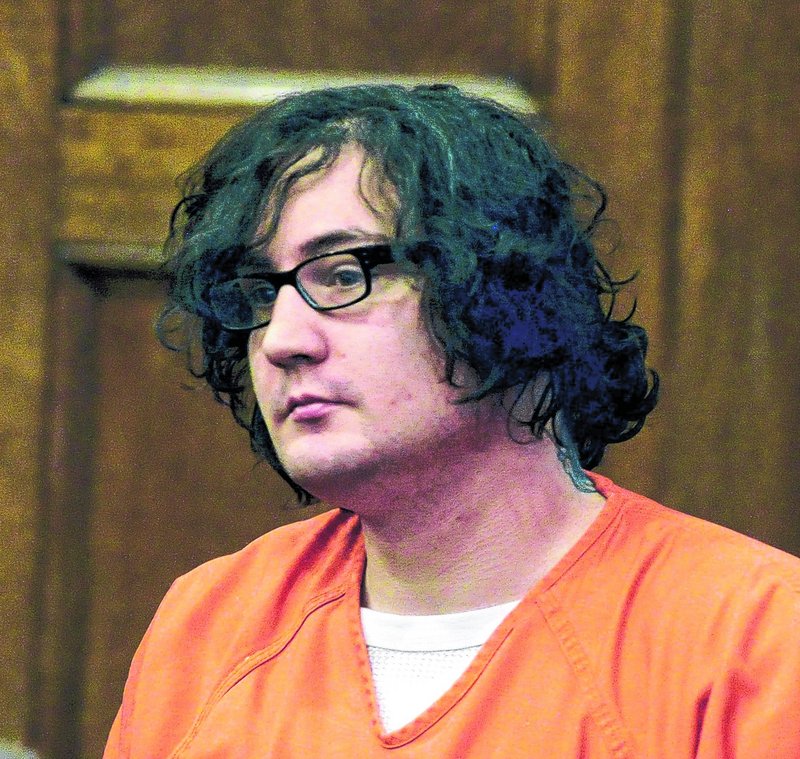PORTLAND — A Portland man convicted of murder and arson after strangling a young woman and decapitating her corpse in 2009 is appealing his case to Maine’s highest court.
Chad Gurney, 30, was sentenced earlier this year to 60 years in prison for killing 18-year-old Zoe Sarnacki and setting fire to her body. Gurney had pleaded not guilty by reason of insanity. If the judge presiding over Gurney’s bench trial had found him not criminally responsible, Gurney would have been committed to a psychiatric facility until he was no longer deemed a threat to society.
Oral arguments before the Maine Supreme Judicial Court are scheduled for Jan. 10.
Sarnacki and Gurney had been dating for several weeks before he strangled her in his Cumberland Avenue apartment on the afternoon of May 25. He had sex with her corpse and decapitated it. He drove to a gas station and bought $2.50 worth of gas, which he poured on the body and bed before setting them afire.
Gurney then checked in to a motel in Old Orchard Beach, where he soaked in a hot tub and had dinner alone. He called a friend on his cellphone, and during the conversation, a Portland police officer pulled the friend over for running a red light. The friend handed his cellphone to the officer, who spoke to Gurney. Gurney turned himself in later that morning.
In his appeal, Gurney’s lawyer is arguing that he was delusional and wasn’t able to understand that his actions were wrong. While the killing has been characterized as a domestic-violence homicide prompted by jealousy, Gurney had a history of avoiding monogamous and serious relationships, Sarah Churchill argued in a brief submitted to the court. A psychotic episode stemming from a personality disorder, stress and withdrawal from an opiate painkiller is the more likely explanation, she wrote.
Gurney’s defense lawyers had argued that a near-fatal van crash in 2005 may have contributed to his mental health problems. He suffered a brain injury, nearly lost a leg and lost most of the use of his left arm.
Journal entries and email messages leading up to May 25, 2009 — the day of Sarnacki’s killing — should have been allowed at Gurney’s trial because they showed he was delusional and paranoid, not simply manufacturing a defense after the fact, Churchill argues. Those writings include references about the universe speaking to him through signs.
The state, meanwhile, is presenting a number of points to argue against a finding of not criminally responsible by reason of insanity. Those include that Gurney’s mental health problems after the crash injuries were limited to depression, that his tendency to see things in terms of signs predated the accident, and that he showed he could act intentionally on the day of the killing.
In regards to Gurney’s writings, Assistant Attorney General Donald Macomber argued that those were not necessary for the judge make decisions about whether Gurney understood his actions were wrong.
When Gurney confessed, he indicated that he understood what he did was wrong, Macomber wrote in his brief. He also argues that the video of the confession shows that Gurney was not irrational or delusional at the time.
Other arguments in the appeal pertain to whether it was correct to present evidence from Facebook and from Gurney’s cellphone, computer and iPod at the trial. One dispute centers on a reference to a video on Gurney’s computer involving the beheading of a female.
Staff Writer Ann S. Kim can be contacted at 791-6383 or at: akim@pressherald.com
Copy the Story Link
Send questions/comments to the editors.



Success. Please wait for the page to reload. If the page does not reload within 5 seconds, please refresh the page.
Enter your email and password to access comments.
Hi, to comment on stories you must . This profile is in addition to your subscription and website login.
Already have a commenting profile? .
Invalid username/password.
Please check your email to confirm and complete your registration.
Only subscribers are eligible to post comments. Please subscribe or login first for digital access. Here’s why.
Use the form below to reset your password. When you've submitted your account email, we will send an email with a reset code.